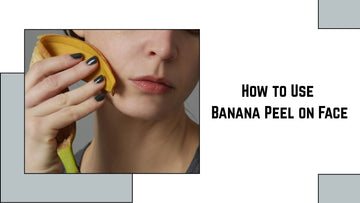When you stroll through the skincare aisle or browse beauty products online, you've probably come across the term non-comedogenic. It’s often listed on cleansers, moisturizers, sunscreens, and makeup products. But what does it mean, and why does it matter, especially if you have acne-prone or sensitive skin?
In this in-depth guide, we’ll uncover the true non-comedogenic meaning, how to identify these products, and why they’re essential for maintaining clear and healthy skin.
What is Non-Comedogenic?
Let’s begin by answering the key question: What is non-comedogenic? Simply put, non-comedogenic refers to products that are formulated in a way that does not clog pores. These skincare and cosmetic products are specifically designed to avoid triggering breakouts, blackheads, or whiteheads.
The term “comedogenic” comes from “comedones,” which are the blemishes caused by clogged pores—namely, blackheads and whiteheads. Therefore, non-comedogenic products are less likely to cause these types of breakouts.
If you struggle with acne, oily skin, or clogged pores, using noncomedogenic skin care products can be a game-changer.
Non-Comedogenic Definition and Importance
The non-comedogenic definition is rooted in dermatology. According to experts, a non-comedogenic product won’t block or clog the pores. This is crucial for those with acne-prone or oily skin types, as clogged pores often lead to breakouts and skin irritation.
Why it matters:
-
Prevents the formation of pimples and blackheads
-
Helps maintain a clear and balanced complexion
-
Allows the skin to breathe while providing hydration and nourishment
If you're building a skincare routine and wondering what is noncomedogenic, remember this: It’s not just a buzzword—it’s a sign of skin safety, especially for those who are acne-prone.
Non-Comedogenic Meaning in Skincare
In the context of skincare, non-comedogenic means relates to how a product interacts with your pores. It means that the ingredients used have been tested and shown to be less likely to clog pores.
This doesn’t guarantee zero breakouts, but it significantly reduces the risk. It's especially helpful for:
-
People with acne-prone or oily skin
-
Individuals with sensitive or reactive skin
-
Anyone using skincare products daily under makeup or sunscreen
Most non-comedogenic skin care products are formulated with lightweight, breathable ingredients that allow your skin to stay clear while still getting the nourishment it needs.
Non Comedogenic Meaning in Hindi
For Hindi-speaking skincare enthusiasts, it’s important to understand the non-comedogenic meaning in Hindi as well.
Here’s a simple translation:
Non-Comedogenic का मतलब होता है ऐसे स्किन केयर प्रोडक्ट्स जो आपके रोमछिद्रों (pores) को बंद नहीं करते और त्वचा में मुहांसों की समस्या नहीं बढ़ाते।
In other words, non-comedogenic products are specially formulated to keep pores clean and prevent acne or pimples—something that many people look for when choosing skincare or makeup.
How Are Non-Comedogenic Products Tested?
Unfortunately, there is no universally regulated standard for labeling a product as non-comedogenic. However, many brands test their formulations on human skin or in labs to evaluate pore-clogging tendencies.
Typical testing methods include:
-
Patch tests on individuals with acne-prone skin
-
Ingredient analysis based on comedogenicity ratings (0–5 scale)
-
Clinical trials that track breakouts over a set period
The lower the comedogenic rating, the less likely the ingredient is to clog pores.
Common Comedogenic vs. Non-Comedogenic Ingredients
To better understand non-comedogenic skin care products, it helps to know which ingredients to avoid and which are safe.
Common Comedogenic Ingredients:
-
Coconut oil (especially in its pure form)
-
Cocoa butter
-
Isopropyl myristate
-
Lanolin
-
Wheat germ oil
Common Non-Comedogenic Ingredients:
-
Hyaluronic acid
-
Squalane
-
Niacinamide
-
Aloe vera
-
Glycerin
-
Zinc oxide
By choosing products with non-comedogenic ingredients, you can reduce the chance of breakouts significantly.
How to Identify Non-Comedogenic Products
Now that you know the non-comedogenic meaning, here are a few tips to identify the right products:
1. Check the Label
Look for keywords like “non-comedogenic,” “won’t clog pores,” or “oil-free.” However, always review the ingredient list, too.
2. Read Ingredient Ratings
Some ingredients have a comedogenic rating from 0 (non-comedogenic) to 5 (highly comedogenic). Try to stick to ingredients with a rating of 0 to 2 if you’re acne-prone.
3. Do a Patch Test
Everyone's skin is unique. Even non-comedogenic products can react differently depending on your skin type. Always do a patch test on a small area before full application.
Who Should Use Non-Comedogenic Products?
While these products benefit all skin types, they are especially helpful for:
-
Acne-prone skin – to avoid triggering new breakouts
-
Oily skin – to prevent blocked pores and control excess sebum
-
Combination skin – to balance hydration without clogging pores
-
Teenagers and adults with hormonal acne
That said, even people with dry or sensitive skin can benefit from using non-comedogenic skin care products to avoid unnecessary irritation or congestion.
Best Non-Comedogenic Skincare Product Categories
Here’s how to incorporate non-comedogenic skin care products into your routine:
1. Non-Comedogenic Cleansers
Look for gel-based or gentle foaming cleansers that remove dirt and oil without stripping the skin.
2. Non-Comedogenic Moisturizers
Choose water-based or oil-free moisturizers with ingredients like glycerin, hyaluronic acid, or ceramides.
3. Non-Comedogenic Sunscreens
Opt for mineral-based sunscreens with zinc oxide or titanium dioxide—great for acne-prone skin.
4. Non-Comedogenic Makeup
Look for lightweight foundations labeled non-comedogenic, especially if worn daily. Avoid heavy cream-based products unless specifically tested for pore safety.
Benefits of Using Non-Comedogenic Skin Care Products
Using non-comedogenic products offers several benefits:
-
Prevents clogged pores and acne
-
Maintains a clear, smooth complexion
-
Balances oil production
-
Safe for daily use under makeup or sunscreen
-
Reduces the risk of irritation or allergic reactions
These benefits make such products ideal not only for those with acne but for anyone looking to improve skin texture and clarity.
Myths About Non-Comedogenic Products
1. They’re Only for Acne-Prone Skin
While helpful for acne, non-comedogenic products are suitable for all skin types.
2. All Oil-Free Products Are Non-Comedogenic
Not necessarily. Some oil-free products still contain pore-clogging ingredients. Always check the label.
3. Non-Comedogenic Means Allergy-Free
No. It simply means the product won’t clog pores. Always patch-test to avoid irritation or allergic reactions.
Final Thoughts: Why Non-Comedogenic Products Matter
To sum it up, understanding what is non-comedogenic is essential for making smart skincare choices. These products help you maintain clean, healthy skin by minimizing clogged pores and reducing breakouts.
Whether you're just starting your skincare journey or refining your routine, choosing non-comedogenic skin care products ensures that your skin can breathe, heal, and glow without unnecessary irritation.
Frequently Asked Questions
Q1. What is the non-comedogenic meaning in simple terms?
Non-comedogenic means a product is made not to clog pores or cause acne.
Q2. Can dry skin use non-comedogenic products?
Absolutely. Many non-comedogenic products are hydrating and ideal for dry or sensitive skin.
Q3. Is there a non-comedogenic meaning in Hindi?
Yes. It means ऐसे स्किन केयर प्रोडक्ट्स जो त्वचा के पोर्स को बंद नहीं करते और मुहांसे नहीं बढ़ाते।
Q4. Are all natural ingredients non-comedogenic?
Not always. Some natural oils, like coconut oil, can be comedogenic.
Q5. Do I need a full routine of non-comedogenic products?
It’s ideal, especially if you have sensitive or acne-prone skin, to prevent product buildup and breakouts.






